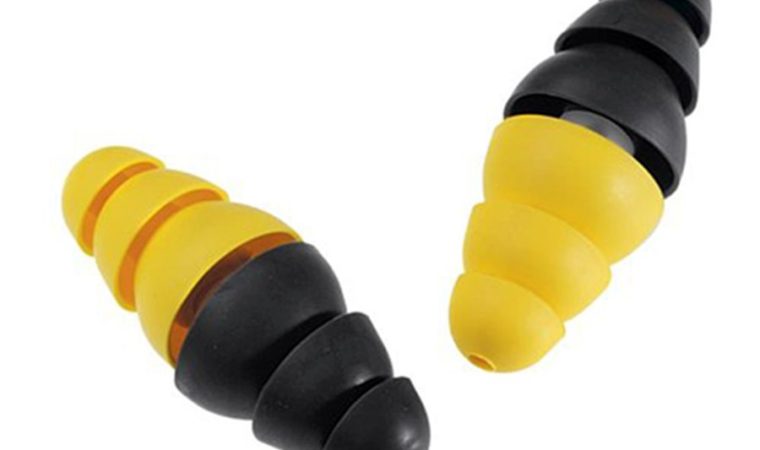From 2003 through 2015, the military’s standard issue earplugs for soldiers in combat were the Combat Arms earplugs manufactured by the 3M Company. The earplugs were meant to protect a soldiers hearing from loud impulse sounds such as explosions and gunfire. But complaints filed by several veterans claim that the earplugs were defectively designed, and have caused thousands of soldiers to suffer hearing loss.
3M Settles with the Government
The Department of Justice filed a complaint against 3M under the False Claims Act regarding the Combat Arms earplugs. The complaint alleged that 3M not only manufactured the earplugs with a defect, but that they were aware of the defect before they started selling them to the military, and took no remedial action to correct the problem. In July of last year, 3M settled with the U.S. government and agreed to pay $9.1 million dollars to resolve the allegations. That figure however only compensates the government, as the funds will not be distributed to veterans that have been severely affected by the defective earplugs. Instead, combat veterans that have risked their lives and safety for this Country will have to file a lawsuit for their injuries.
The government plainly lays out 3M’s wrongdoing in their complaint. The earplugs have two different ends and were designed to block sound like traditional earplugs when in the “closed” position, but they were also designed to reduce impulse sounds, such as battlefield explosions, while allowing the wearer to hear commands when in the “open” position.
Reports indicate that the stem of the earplugs were too short when manufactured. As a result, when users put the plug in their ear, the part that was not inserted into the ear canal would push against the canal due to the short stem, which would then prevent the plug from going deep enough into the ear to provide a safe seal to block out sounds.
Users were not aware that a proper earplug seal was not forming, and thus their ears were not protected. Many soldiers suffered permanent hearing loss or tinnitus, as a direct result of the earplug defect.
Failure to Warn
What is damning about the complaint against 3M are allegations that the company knew about the defect years before they were given an exclusive contract to provide selective attenuation earplugs to the military. If true, this means that 3M put profits over a soldier’s safety, which is reprehensible and should subject 3M to punitive damages for intentional misconduct. Veterans who have suffered injuries due to 3M’s failure to warn have started to bring mass tort product liability cases around the country.
In the government’s complaint, evidence was presented regarding 3M’s testing methods for the earplugs that showed that a defect was known. Tests of the earplugs in the closed position resulted in a Noise Reduction Rating (NRR) of only 10.9. An acceptable NRR would be in the 20’s and 3M expected an NRR of around 22.
Furthermore, when the test subjects wore the earplugs in the open position the NRR was -2, an invalid result that would mean that the earplugs actually amplified sound instead of reducing sound when in the open position. This rating was due to 3M’s flawed testing. 3M wanted a low NRR on the open position so that they could market the earplugs as giving soldiers the ability to hear commands. 3M falsely reported the -2 NRR as a 0 NRR and did not retest.
3M was able to identify the short stem as the cause of the low ratings, and when they retested the earplugs, the test subjects were instructed to fold the flanges that were not inserted into the ear canal backwards so that they would not push the plug out and allow the user to insert the earplug deep into the canal to obtain a proper fit and seal. Inserting the earplug in this odd way allowed 3M to obtain an NRR of 22.
The problem was that 3M never told soldiers to fold back the flanges in their standard instructions. Rather, soldiers were told in the instructions to simply insert the earplugs as is. This means that for veterans serving in Iraq and Afghanistan who were using the earplugs as instructed, the reduction in damaging sounds to their ears could have been less than half of what they experienced had 3M been open and transparent about the issues concerning the fit of the earplugs.
Damages to Veterans
Potentially thousands of soldiers suffered damage to their hearing due to 3M’s false claims about their product. Tinnitus is the most claimed disability for veterans. Veterans are 30 percent more likely to suffer from the condition than the average American. The Department of Veterans Affairs states that in 2016, nearly 200,000 veterans were diagnosed with tinnitus. Hearing loss is also an extremely prevalent problem for veterans. In 2016, 103,000 were diagnosed with some form of hearing loss.
For 12 long years, 3M put American soldiers serving throughout the world at unnecessary risk for hearing loss. Veterans’ lives have been permanently altered due to an entirely preventable defect. If you are a former soldier that used standard issue earplugs while serving in the military, and you have been diagnosed with hearing loss or tinnitus, contact the attorneys at Abrams Justice by calling (305) 709-0880 to learn more about your rights, and to set up a free consultation.


